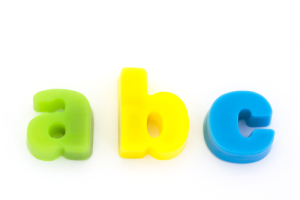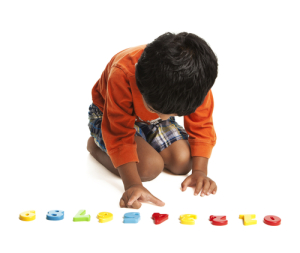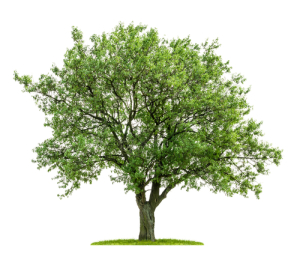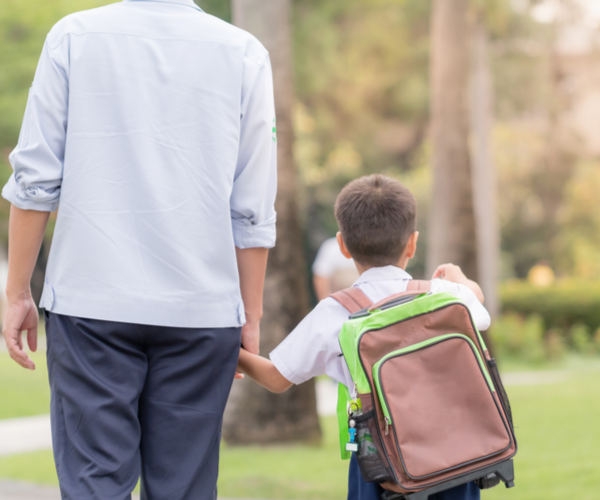In our latest blog series - 'Year Overview' - we help you get familiar with all the key topics your child will learn and the key skills they'll improve in primary and secondary school. Here's a brief overview of Year 1 in English, maths and science with focus areas and main topics.
* Year 1 Overview *
English
Ms Brown - English teacher
 The children will be busy building on all of the skills they have developed in the Early Years Foundation Stage. They'll continue using their knowledge of phonics to sound out and blend unfamiliar words and their reading will be becoming much more confident. In class, the children will be sharing the reading of key stories such as fairy tales and traditional tales and will be discussing these. At the end of the year, they'll have a Phonics Screening Check where they'll have to read 40 words. You'll be told whether they have passed this screening check.
The children will be busy building on all of the skills they have developed in the Early Years Foundation Stage. They'll continue using their knowledge of phonics to sound out and blend unfamiliar words and their reading will be becoming much more confident. In class, the children will be sharing the reading of key stories such as fairy tales and traditional tales and will be discussing these. At the end of the year, they'll have a Phonics Screening Check where they'll have to read 40 words. You'll be told whether they have passed this screening check.
Children’s writing will be developing at a much slower pace than their reading and this is normal! Don't worry! They'll be developing the physical skill to write and learning how to organise their ideas. They'll learn how to sit correctly at a desk and how to form letters correctly. As Year 1 progresses, the children will be familiar with the alphabet and along with learning to spell common words and common unfamiliar words, they'll be learning to spell the days of the week and write simple dictated sentences correctly. They'll also be able to use capital letters and basic punctuation. By the end of the year, they'll be able to write their ideas in sentences. You'll be amazed!
Maths
Mr Lamberth - Maths teacher
 Year 1 allows children to start to formalise much of the mathematical thinking they’ve encountered in reception. They'll build on their number skills - counting up or down from any number up to 100, counting in multiples of 2, 5 and 10 and using the number line to identify what numbers are greater or smaller. Children also need to be able to recognise and interpret the four operators of +, -, x and ÷ alongside understanding the significance of =. They’ll be working with one-step mathematical statements involving all of these operations using objects and pictures to help them. They’ll also need to understand the concepts of one half and one quarter and will be measuring and comparing anything that they can find in terms of length, weight, capacity and time. Finally, children will continue to consider 2D and 3D shapes and how they look when they move or turn.
Year 1 allows children to start to formalise much of the mathematical thinking they’ve encountered in reception. They'll build on their number skills - counting up or down from any number up to 100, counting in multiples of 2, 5 and 10 and using the number line to identify what numbers are greater or smaller. Children also need to be able to recognise and interpret the four operators of +, -, x and ÷ alongside understanding the significance of =. They’ll be working with one-step mathematical statements involving all of these operations using objects and pictures to help them. They’ll also need to understand the concepts of one half and one quarter and will be measuring and comparing anything that they can find in terms of length, weight, capacity and time. Finally, children will continue to consider 2D and 3D shapes and how they look when they move or turn.
Science
Ms Latham - Science teacher
Year 1 introduces children to the study of science through four main topics, during these topics children will learn to ask questions, recognising that they can be answered in different ways. They'll observe closely and use basic equipment to perform simple tests. Children will identify, classify, use their own observations and ideas and suggest answers to questions. They'll gather and record information.
 During the ‘plants’ topic, children should be able to identify and name a variety of plants, including deciduous and evergreen trees and identify and describe the basic structure of a variety of flowering plants and trees. The ‘animals’ topic will teach children to identify a variety of animals including; fish, amphibians, reptiles, birds and mammals and sort them into carnivores, herbivores and omnivores. Children should describe and compare the structure of a range of animals. In addition they should identify, name, draw and label the basic parts of the human body and associate the senses with the correct body part.
During the ‘plants’ topic, children should be able to identify and name a variety of plants, including deciduous and evergreen trees and identify and describe the basic structure of a variety of flowering plants and trees. The ‘animals’ topic will teach children to identify a variety of animals including; fish, amphibians, reptiles, birds and mammals and sort them into carnivores, herbivores and omnivores. Children should describe and compare the structure of a range of animals. In addition they should identify, name, draw and label the basic parts of the human body and associate the senses with the correct body part.
For ‘everyday materials’ children will identify and name everyday materials and describe the physical properties of them, they'll distinguish between an object and the material from which it is made. In ‘seasons’ children will learn to recognise weather changes across the four seasons and describe how day length varies.



.png)






